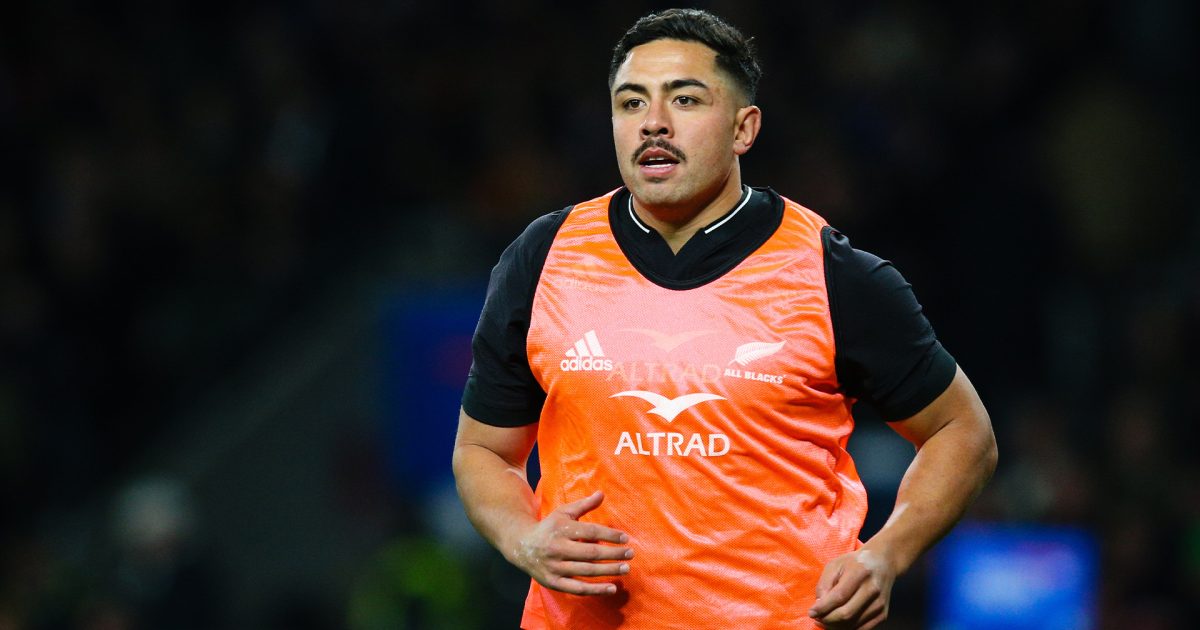'Rugby was my ego, rugby was who I was': Anton Lienert-Brown opens up on his anxiety

All Black midfielder, Anton Lienert-Brown, has shared stories of his journey with mental health, taking the opportunity in a sit down with World Rugby to promote the power of vulnerability and other life lessons.
Lienert-Brown has logged 59 caps for the All Blacks on the field and is a Movember ambassador off of it, promoting the organisation that focuses on men’s physical and mental health through a number of initiatives and donation drives.
The Chiefs star began by reflecting on his Super Rugby debut, revealing the lessons learnt from his youth and his relationship with rugby.
“I was an 18-year-old, I was a little bit naïve,” Lienert-Brown admitted. “In hindsight, it was a big challenge.
“Things I clearly remember was, I think the first play of the game, I made a mistake and I went straight into my shell. I took that debut game quite personally, I took it really hard and in all seriousness, I thought that was probably my rugby career over. That’s just how I thought as a kid.
“At that stage of my rugby career – and I think it happens for everyone – rugby was my ego, rugby was who I was, so how I performed was how I felt, and I obviously had a poor performance so for a long time, I didn’t feel great.”
in 2016, a 21-year-old Lienert-Brown made his All Blacks debut, a huge accomplishment but not one that alleviated any symptoms of anxiety. In fact, Lienert-Brown pinpointed that year as one where he was “battling the worst with anxiety” and it was that year that he reached out and spoke about his anxiety.
“That was the start of my journey to get through those challenging times.
“I’m fortunate enough to have heaps of people help me along the way, and I needed that help because mentally, there was a period there where I got into a pretty bad state, where anxiety was a regular part of my life.
“It’s the hardest thing to do is to speak out but once you do, there’s so many people who want to help and helped me get over – well not get over anxiety, I still have moments and it’s something that’s just a part of life but once you realize that, thing’s are so much better.
“Once you find the tools and the way of dealing with things it becomes a lot easier because you can recognize it, you talk to the right people and yeah, opening up helped massively.
“It’s been a long process, but it’s been a good one. It’s just crazy the power of the mind, we’re actually in control of what we think if we do the right work but our mind tells us things every day and we’ve got to make sure it’s the right thing.
When probed for specifics on how he manages his thoughts and what self-talk he uses to navigate them, Lienert-Brown again referred to his long journey for reference, noting where he started and what he now knows.
“I’m quite hard on myself, growing up I wanted perfection, I want to be the best at what I do.
“It’s not actually going ‘Anton you’re the man’, it’s more recognizing when you have bad thoughts, just go easy. It’s recognizing if you’re getting too ahead of yourself or if you’re being too hard on yourself, it’s trying to find the neutral, the balance.
Lienert-Brown tore the Landrum in his right shoulder during a Super Rugby Pacific match in April, the second time he’d suffered that exact injury in the space of six months. In returning from the injury following surgery and a lengthy rehab, the midfielder described his time away as an opportunity to work on himself and come back a better player, evidence of his positive mindset.
“There’s a TED talk and podcast that I listened to from Brené Brown, that was probably when it really struck me the importance of opening up. She talks about the biggest strength you can have is vulnerability and I really believe that, because being a rugby player is being vulnerable, because every week you’re up for discussion so I see being a rugby player as being vulnerable. Every time I run out to Eden Park, that’s being vulnerable.
“As long as I prepare the best I can and play the best I can then hopefully that sorts itself out. But rugby’s a journey, you can’t always play well but you can have the best intentions to.
“I’ve found my love for rugby again, there’s been stages in my career that I’ve hated the game, but I haven’t hated really hated the game, it’s been a lot of things in my head that have made me think that but now I see rugby in a different light, I think I’ve found the right balance.










































































